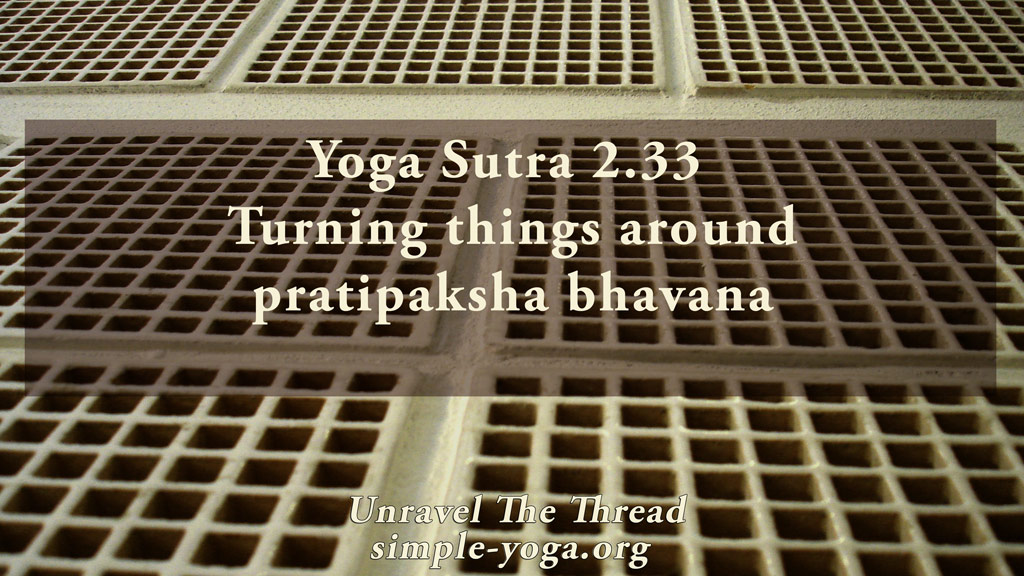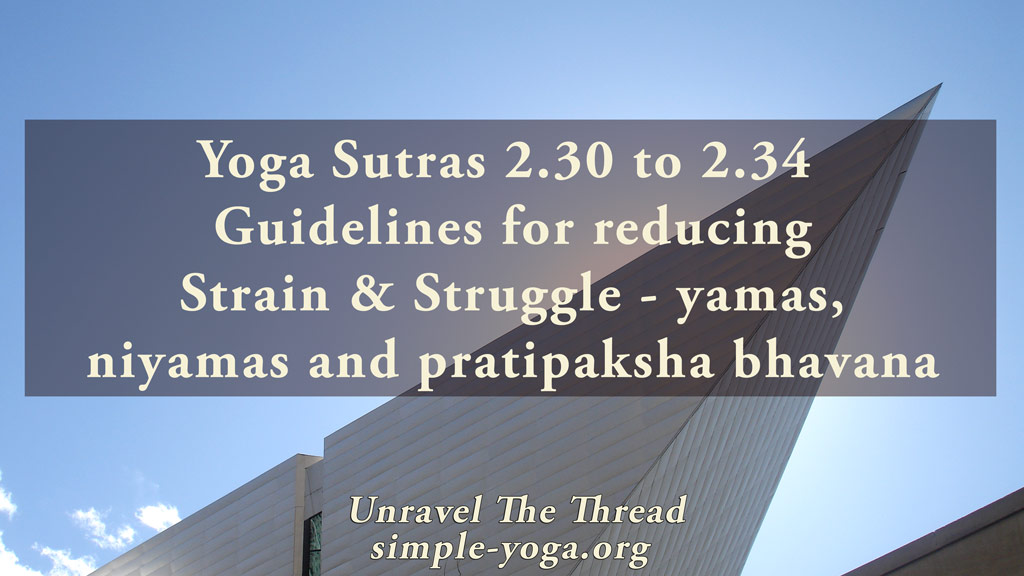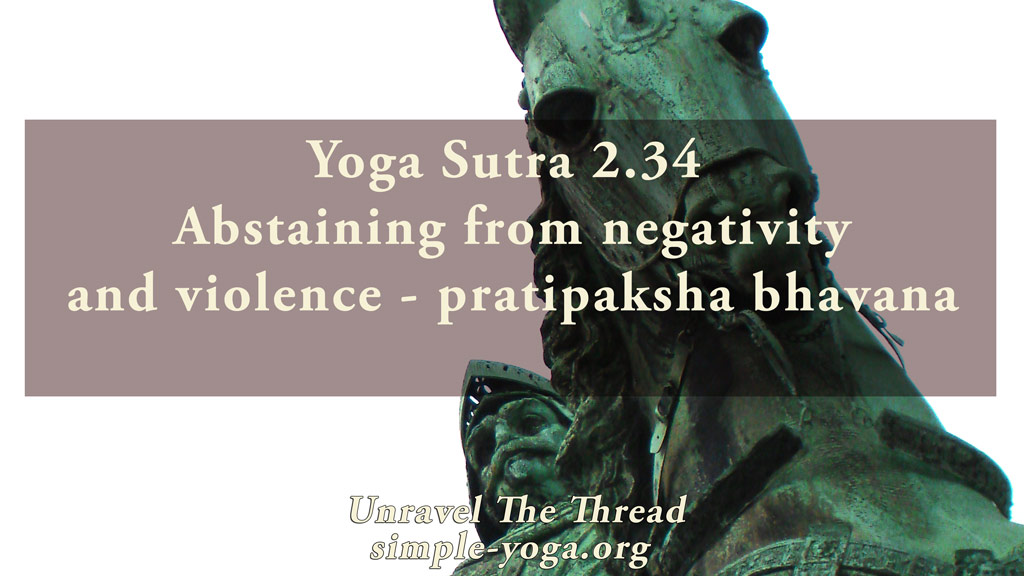
2.33 Turning things around (pratipaksha bhavana)
December 1, 2020
2.30-2.34: Guidelines for reducing strain and struggle
December 6, 2020
2.33 Turning things around (pratipaksha bhavana)
December 1, 2020
2.30-2.34: Guidelines for reducing strain and struggle
December 6, 20202.34 Abstaining from negativity and violence

2.34 Choosing not to engage in negative and violent thoughts, emotions or actions at any level prevents never ending pain, imbalance and suffering. (pratipaksha bhavana).
In the twentieth century, Gandhi, inspired by the Bhagavad Gita embodied non-violence in an admirable and enduring way. This sutra echoes in Gandhi’s words: “If we could change ourselves, the tendencies in the world would also change. As a man changes his own nature, so does the attitude of the world change towards him. This is the divine mystery supreme. A wonderful thing it is and the source of our happiness. We need not wait to see what others do.” Although it may often seem that the practice of yoga is a solitary endeavor that may lead to isolation, the contrary is true. The more you are integrated, the easier it is for you to see that you are not alone, and, indeed, that you have never been. In support of verse 2.33, sutra 2.34 specifically reiterates how negativity and violence plant seeds for never- ending pain and suffering. Although this may seem obvious, Patañjali categorically spells out how all violence will generate more suffering and ignorance, regardless of your role in it – as initiator, offender, or accomplice – or its cause, confusion, delusion or anger. Engaging in negativity and violence plants the seeds for future experiences that will be colored by suffering.
Observing your own internal environment, you can explore the immediate effects of negative and violent thoughts in yourself. Start by sitting or lying down in a comfortable position and relaxing any holding or tension to establish a baseline for your experiment. Then bring into your space of awareness a negative emotion. Stay with it noticing how you feel inside. Try this also with a negative thought or memory.
How are your different systems affected by this negativity?
Do you notice changes in your sensations, breath, and overall outlook?
What happens when you turn around the thought a little bit, by trying to invite a more positive angle to the emotion or thought?
You may also explore the effects of negativity in your movements by standing up in a neutral position with arms resting to your sides and with your mind in its habitual state.
Then open your arms out to the sides and lift them up, then return your arms to rest by your sides again.
Try this a few times. Then recall a negative thought or emotion and do the same movement a few times.
Does something change in the quality of your movements?
What happens when you choose an inspiring thought or emotion?
Watch for any negativity and violence in your internal commentary.
Unfortunately, for some of us, it is very common to hear our internal voice on a constant tirade berating many aspects of ourselves. It may even feel like there is ongoing hostility in our internal environment. Experiment to find out if turning around your ways of being toward uplifting and inspiring thoughts and emotions (pratipaksha bhavana) may contribute to create a more harmonious and integrated internal environment. Notice how these internal changes ripple out into your actions and interactions so that your participation in the world may become more mindful, compassionate, and meaningful.
As usual, one more way of exploring the meaning of this sutra is by chanting it.
You can choose to chant it in its traditional form with some of the words coming together:
2.34 vitarkā hiṃsādayaḥ kṛtakāritānumoditā lobhakrodhamohāpūrvakā mṛdumadhya adhimātrā duḥkhājñānānantaphalā iti pratiprakṣabhāvanam
वितर्का हिंसादयः कृतकारितानुमोदिता लोभक्रोधमोहापूर्वका मृदुमध्य अधिमात्रा दुःखाज्ञानानन्तफला इति प्रतिप्रक्षभावनम् ॥३४॥
Another option is to chant each word in the sutra individually:
- vitarkā
- hiṃsādayaḥ
- kṛta
- kārita
- anumoditāḥ
- lobha
- krodha
- mohā
- pūrvakāḥ
- mṛdu
- madhya
- adhimātrā
- duḥkha
- ajñāna
- ananta
- phalā
- iti
- pratiprakṣa
- bhāvanam
If you prefer, you may listen to the podcast:
Unravel the thread is now available as a book!
If you find Simple-Yoga.org and Unravel the thread useful, consider supporting my labor with a donation, you may also donate using PayPal or Venmo. Thank you!
